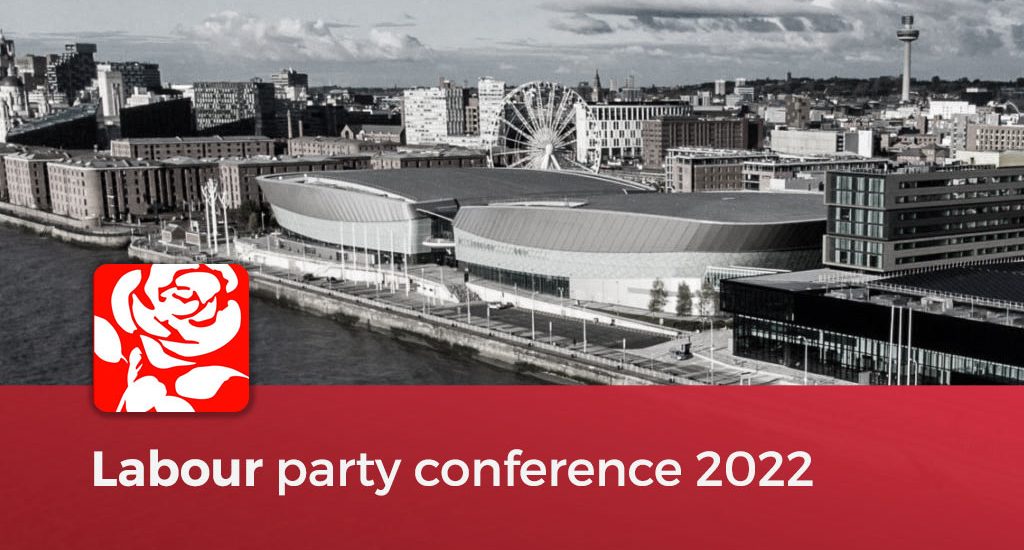- September 29, 2022
- Posted by: lutherpendragon
- Categories: insight, news

Last week, on the eve of Labour Party Conference, Shadow Secretary of State for Defence John Healey wrote in the Independent of the need to make: “British industry and our peacetime defence procurement system a major priority.”[1] Not that we needed any reminding, but Healey’s piece was a stark reminder of the developments in the Labour Party’s rhetoric on foreign affairs, defence and national security since Keir Starmer became leader in the Spring of 2020. So, what did we learn at Labour Party Conference this week about Labour’s approach to defence, security and procurement?
Here’s what Senior Consultant Will Gray has to say:
Shadow Business Secretary Jonathan Reynolds drew one of the bigger rounds of applause when he quipped: “There was a time when the Tories believed they were ‘the party of business’. Now they are just in the business of parties.” As well as making the challenge on business, Labour was also out to continue its challenge of the notion that the Conservative Party is stronger on defence.
Labour knows it has its work cut out on this point. Healey told the i’s Francis Elliot back in May that: “The hardest doors to knock at the last election were those with Help for Heroes or British Legion signs in the windows.”[2] Labour Friends of the Forces’ Toby Dickinson listing out the various Prospective Parliamentary Candidates (PPCs) and councillors with armed forces backgrounds at their Monday reception was a mark of just how far the Party is willing to go to convince voters that Labour can be trusted to protect national security.
But there were indications of how seriously industry is taking the Labour Party now, with prime contractors and supply chain providers alike making the long (just how long depended on which train you were lucky enough to get on) journey up to Liverpool to make their case.
Much has already been written of the sense of optimism surrounding the Conference in Liverpool, and Labour’s confidence about the prospect of entering government at the next General Election. The Party’s promise to conduct another integrated review once it enters government were a further sign of its growing positivity on issues of defence and security. While we will have to wait to see what is in John Bew’s latest iteration, having told a Policy Exchange fringe event that the “procurement system has rewarded failure for too long”, Shadow Minister for the Armed Forces Luke Pollard promised that Labour would lead a “rebooting of defence strategy.” This reboot would “challenge assumptions” made in the Defence Command Paper around cuts and future procurement needs, Pollard went on to say. The Q&A that followed covered not only the conflict in Ukraine, but the challenging geopolitical system in the Far East, which Pollard said provided “opportunities for UK plc” to respond to.
Labour’s plans “to buy, make and sell more in Britain”[3] and to “buy British by default”[4] came under the spotlight at defence-focused fringe events, with a number of questions put to the Shadow Defence Team on how they would negotiate the price, capability and prosperity nexus. At a New Statesman event sponsored by Babcock, John Healey levelled with the audience, explaining that if there was an easy answer to that question, the UK wouldn’t have a procurement system that’s wasted at least £13bn of taxpayers’ money since 2010. His answer, however, was that Labour wouldn’t make price the only consideration, perhaps by mirroring what the UK’s allies are doing by taking into account the net economic benefit of the procurement taking place.
This week’s events show that we need to seriously consider what a regime change could mean for defence, security and procurement. A challenge and opportunity that could come sooner rather than later.
Luther Pendragon is one of the UK’s most highly-regarded independent communications consultancies, with a 30 year track record of helping organisations – including those in aerospace and defence – understand and manage political risk and tell compelling stories to the people that matter. Contact us to find out how we can help your organisation make an impact.
[1] https://www.independent.co.uk/voices/ukraine-russia-war-nato-labour-b2173121.html
[2] https://inews.co.uk/news/doubts-labours-uk-defence-policy-shadow-minister-unshakable-1602605
[3] https://labour.org.uk/wp-content/uploads/2022/09/Industrial-Strategy.pdf
[4] https://www.mirror.co.uk/news/politics/labour-steps-up-buy-british-23862882
